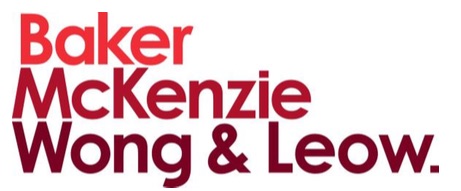25 February, 2019
This decision concerns an application for declarations of invalidity on the 

This decision serves as a timely reminder that even if a party is the sole provider of a particular product or service, they do not automatically acquire the right to register the mark under that product or service. This is particularly the case where the trade mark on its own is descriptive in nature of goods or services widely known and referred to in the relevant industry.
It is further notable that the onus lies with the Applicant to plead the necessary grounds of invalidation. In this regard, it is beyond the tribunal's scope of powers to invoke such grounds on its own accord, even in the name of public interest.
Facts
Intercontinental Exchange Holdings Inc (the "Respondent") is the registered
proprietor of the trade marks 

Chicago Mercantile Exchange Inc. (the "Applicant") applied for declarations of invalidity on 27 July 2016 on the basis that the Subject Marks were:
(i) devoid of the distinctive character required of a trade mark (section 7(1)(b) of the Trade Marks Act (the "TMA"));
(ii) descriptive of characteristics of those services (section 7(1)(c) of the TMA); and/or
(iii) commonly-used terms in the relevant trade (section 7(1)(d) of the TMA).
Both the Applicant and the Respondent are large corporations involved in the business of operating market exchanges, including the generation and dissemination of data for a variety of financial products.
Decision
(i) The average consumer
At the outset, the Adjudicator gave consideration to the "average discerning consumer" of the financial services for which the Subject Marks were relevant. The Adjudicator held that it was the perceptions of financial services professionals and investment-savvy individuals that must be considered, given that the Subject Marks were registered for a broad range of financial services.
(ii) Section 7(1)(c) TMA – descriptive of characteristics of services
The Adjudicator held that the "BRENT" mark was exclusively descriptive of the services for which it is registered (i.e., crude oil and related financial services).
The Proprietor had argued that it had used the word "BRENT" as a short-form of "ICE BRENT" to justify its contention that the "BRENT" mark is distinctive. However, the Adjudicator observed that the word "Brent" could not be transformed into a distinctive mark properly registrable on its own as a trade mark for financial services, merely through use by the Respondent of the word in a descriptive way or together with a distinctive element "ICE", which they chose to drop occasionally for convenience in promotional material.
Moreover, whilst the Respondent argued that it was the sole provider of "BRENT" pricing information, the Adjudicator noted that this did not lead inexorably to the conclusion that "BRENT" was a registrable trade mark.
Likewise, the Adjudicator held that the average consumer of the relevant services in Singapore could not fail to be informed immediately by use of the "BRENT INDEX" mark of the intended purpose and nature of the particular financial services.
The ground of invalidation under 7(1)(c) thus succeeded in respect of the Subject Marks.
The Adjudicator further held that the Proprietor's "BRENT"-variant marks did not comprise of a family of marks giving rise to distinctiveness on the part of the Subject Marks. To this end, if the word simpliciter is unregistrable under Section 7(1)(b), (c) and/or (d) of the TMA, it becomes no less unregistrable merely because it forms part of one or more registered trade marks.
(iii) Section 7(1)(b) TMA – devoid of any distinctive character
The Adjudicator held that as a matter of logic, a trade mark that is exclusively descriptive cannot have any distinctive character as an indication of origin.
In light of the Adjudicator's findings on Section 7(1)(c) of the TMA, he held that the ground of invalidation under Section 7(1)(b) succeeded in relation to the Subject Marks.
(iv) Section 7(1)(d) TMA – commonly-used terms in the relevant trade
In view of the findings that the BRENT mark is both devoid of distinctive character as a trade mark for the specification of services for which it is registered, and exclusively descriptive of at least one of the characteristics of those services, the Adjudicator held that it must follow logically that the Applicant had discharged its onus to prove that the Subject Marks were generic in relation to the "BRENT" mark.
The Adjudicator found that "BRENT" was a generic word in the relevant market that, in the public interest, should be owned by no trader as a registered trade mark for services provided to those in that market.
(v) Section 7(6) TMA – Bad faith
The Adjudicator observed that the Applicant had chosen not to rely on the ground of bad faith, despite the extremely broad specification of services for which the Subject Marks were registered.
In this regard, the Adjudicator considered whether he had the power under the TMA to decide on his own volition, in the public interest, that a registration was obtained in bad faith.
The Adjudicator concluded that he did not. However, the Adjudicator opined that if he had the power to do so, he would have decided in favour of the Applicant.
Comment
This decision serves as a timely reminder that even if a party is the sole provider of a particular product or service, they do not automatically acquire the right to register the mark under that product or service. This is particularly the case where the trade mark on its own is descriptive in nature of goods or services widely known and referred to in the relevant industry.
It is further notable that the onus lies with the Applicant to plead the necessary grounds of invalidation. In this regard, it is beyond the tribunal's scope of powers to invoke such grounds on its own accord, even in the name of public interest.
For further information, please contact:
Andy Leck, Principal, Baker & McKenzie.Wong & Leow
andy.leck@bakermckenzie.com





